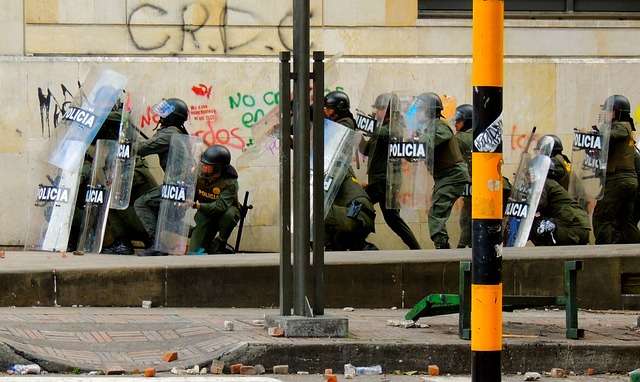At the 6th WTO Ministerial in Hong Kong, no deal is better than a bad deal since the only possible deal that can come out of ongoing negotiations is one that would further consolidate the underdevelopment, marginalisation and immiseration of the South. Here are ten reasons why:
-
Dumping: A new deal would force developing countries to open their agricultural markets further to the entry of highly subsidized products, thereby undercutting the prices of local produce, undermining local livelihoods and exacerbating distress migration.
-
Domination: A new deal is about domination of the world’s markets by the trading superpowers and their transnational corporations, at the expense of peoples’ rights and livelihoods.
-
Denial: Developing countries have repeatedly called for mechanisms to protect their food security and the livelihoods of their rural populations under the Agreement on Agricutlure. The US and EU have consistently denied them of these options.
-
De-Industrialization: A new deal would lead to de-industrialization, and the killing off of fledgling local and domestic industries in developing countries, which will result in job losses, unemployment and greater poverty.
-
Destruction: A new deal would force developing countries to liberalise sensitive sectors such as fisheries and forestry on which millions of rural livelihoods depend. The Non-Agricultural Market Access agreement (NAMA) would push for more exports of fisheries and forestry products, destroying small scale fisheries and communities.
-
Deprivation: A new deal would open up the services sector to liberalisation, including critical public services such as water, power, health and education, limiting access to these services to only those who can afford it and depriving everybody else. By letting the Trade Related Intellectual Property (TRIPs) Agreement remain as it is, millions of people in the world will be deprived access to essential and life saving drugs.
-
Disempowered: The General Agreement on Trade in Services (GATS) would ‘lock-in’ countries to liberalization of services and limit the options for developing countries to regulate these service sectors in accordance with their development priorities. The new proposed “benchmarking” approach in GATS would force countries to open up sectors that they do not want to liberalize and undermine public interest everywhere.
-
Diminished: By further entrenching the power of the rich trading nations of the North, a new deal would aggravate the imbalance in world trade instead of address it. This will diminish any hopes for least developed and developing countries to have true development.
-
Danger: A new deal would lead to more not less WTO-plus bilateral and regional free trade agreements, as it would set the ground for deeper and faster liberalization. Intellectual Property Rules (IPRs) under the WTO and WTO-plus trade agreements will deepen threats to bio-diversity, traditional knowledge and the rights of indigenous peoples all over the world.
-
Development: And finally, no deal is better than a bad deal because there is nothing developmental about this round and there is absolutely nothing for developing countries and majority of the world’s peoples to gain from this deal.
Focus on the Global South
Download the Derailer’s Guide to the WTO, and the accompanying video, Why the WTO is really bad for you.
Download the Derailer’s Guide to the WTO, and the accompanying video, Why the WTO is really bad for you.







